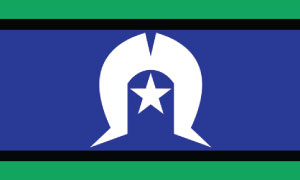A Legal Task is where a Centre undertakes a discrete, clearly-defined, one-off piece of legal work (an identifiable deliverable) to assist a Service User in their own efforts to resolve a legal problem, with no commitment to support the Service User beyond the completion of that piece of work. The two main types of work in a Legal Task are revising or preparing particular documents for a Service User to use in their legal proceedings; or a limited instance of interacting with a third party to help progress a Service User’s legal matter.
The most common type of Legal Task is revising or preparing document/s to be used by a Service User in one stage of their legal matter, without any commitment to continue revising the documents as circumstances change; to review / revise additional documents; or to assist the Service User with other parts of the legal process.
Examples are:
Preparing a will is a particular example of a Legal Task set out in the National Data Standards Manual. If your Centre does prepare wills, we recommend you record the work as follows:
The second common type of Legal Task is where the Centre interacts with a third party to assist a Service User to progress their matter, but makes no commitment to further assist the Service User after the particular piece of work is completed.
Note that for Legal Tasks requiring the Centre to communicate with a third party about the Service User’s matter, as a matter of legal practice / privacy law the Centre will need to ask the Service User to sign an Authority/Consent to Provide Information to the Centre (this authority has a range of different names). Further information is in the Risk Management Guide.
Examples are:
A Legal Task usually only has one legal problem type. If a Centre undertakes legal work for one Service User in relation to a number of different legal problems, particularly if there are different Other Parties, each piece of work should be recorded as a different Legal Task.
A Legal Task might include a range of activities, and/or several interactions between the lawyer and Service User (Actions in CLASS) to finalise the piece of work, as the will example above illustrates
It is important not to list each activity as a separate Legal Task. For example, when reviewing and revising documents for a legal matter, the Centre may need to contact the Service User 2-3 times to check facts, might make a call to a third party to clarify hearing dates, and may undertake the work over a period of time before returning the documents to the Service User. All these activities are part of the one Legal Task (and in CLASS, can be recorded as Actions against the Legal Task).
If the Service User returns after this piece of work is completed, and asks the Centre to review different documents, this would be a 2nd Legal Task.
Even where one Legal Task takes place over more than one day, the Date of Service is the date the Task is opened/commenced. “Discrete services” do not relate to a particular amount of time being spent, or a limitation to one point-in-time (eg same day).
CLASS has the ability to enter a “close date” against a Legal Task. This is simply to assist Centres to manage Actions within a Legal Task.
Centres are encouraged to record the time spent on the Legal Task, so they have a better understanding of how much time their Centre on average takes to do a Legal Task.
Centres using CLASS are also encouraged to start recording Actions undertaken as part of the Legal Task. This might help a Centre understand the typical progress of Legal Tasks for particular legal matters. Over time, this information can assist CLCs Australia in providing a better description of Legal Tasks in the future . At a Centre level, it could also help streamline the Centre’s management of particular Legal Tasks, for example, delegating some tasks to volunteers or students.
Where information is provided in the same session as a Legal Task, it should not be recorded as a separate Information Service – it is subsumed as part of the Legal Task.
Referrals can be recorded in the Legal Task – in CLASS these get counted in reports on Referrals.
Reviewing a Service User’s documents and researching the law to prepare legal advice for the Service User is not a Legal Task, it is part of a Legal Advice, because it does not involve any interaction with a third party, or preparing documents for the Service User to use in legal proceedings.
It is common for a Centre to provide a Legal Advice and a Legal Task during one advice appointment. When this occurs, it should be recorded as one Legal Advice and one Legal Task. In other words, a Legal Task does not subsume a Legal Advice (or vice versa): they are two separate Services.
In some rare occasions, a Legal Task might be provided (eg liaising with third party to get information) before any Legal Advice is provided to the Service User – see Case Study Maha v Centrelink.
For Legal Tasks where the Centre needs to communicate with a third party about the Service User’s matter, as a matter of legal practice / privacy law, the Centre will need to ask the Service User to sign an Authority/Consent to Provide Information to the Centre (this authority has a range of different names). Obtaining this Authority is in itself is a good indicator that the service being provided is more than a Legal Advice. (Note it might also be a type of ongoing legal service, see below).
Assistance with Legal Tasks provided by a duty lawyer to a Service User at a court or tribunal – for example, assistance drafting court documents or negotiating with other parties where the duty lawyer has not agreed to represent the Service user – is not counted as a Legal Task but as a type of Duty Lawyer Service.
If a Centre makes a commitment to a Service User to provide ongoing legal support to them over a period of time, to help them resolve a legal dispute or represent themselves in legal proceedings, this should be recorded as an Ongoing Legal Support Service.
If the Centre makes a commitment to the Service User to take carriage of the Service User’s matter in an ongoing representative capacity, this is not a Legal Task, but one of the Representation services.
If staff or volunteers at your Centre are still having difficulty identifying whether a particular activity is a Legal Task or another type of service, we recommend you look in the Resources section to see if the Ready Reckoner, Flowchart, or Matrix help.
Case Study – Yousef v the bank
Case Study – Maha v Centrelink


Community Legal Centres Australia acknowledges the traditional owners of the lands across Australia and particularly acknowledges the Gadigal people of the Eora Nation, traditional owners of the land on which the Community Legal Centres Australia office is situated. We pay deep respect to Elders past, present and emerging.

Community Legal Centres Australia is a proudly inclusive organisation and an ally of the LGBTIQ+ community and the movement toward equality.
ABN 67 757 001 303 ACN 163 101 737
Disclaimer | Privacy Policy
© Community Legal Centres Australia 2022 | Designed by DropIn Solutions